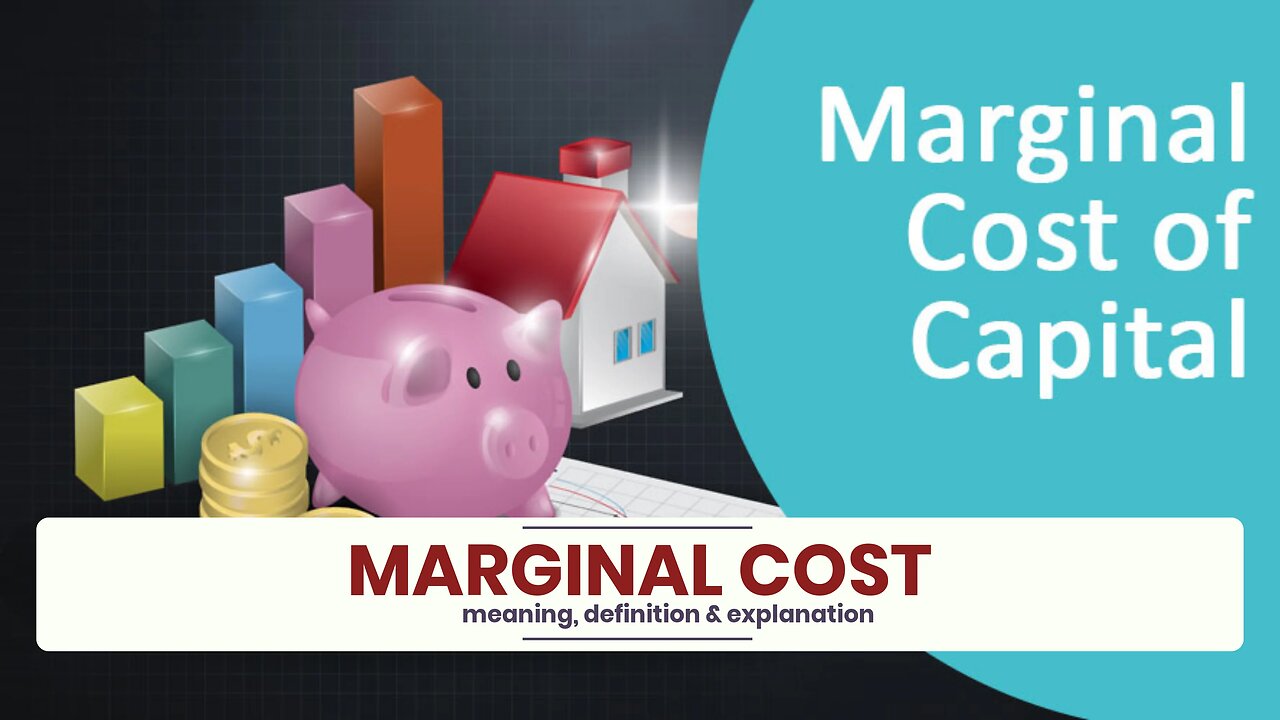Premium Only Content

What is MARGINAL COST?
✪✪✪✪✪
http://www.theaudiopedia.com
✪✪✪✪✪
What does MARGINAL COST mean? MARGINAL COST meaning - MARGINAL COST definition - MARGINAL COST explanation. What is the meaning of MARGINAL COST? What is the definition of MARGINAL COST? What does MARGINAL COST stand for? What is MARGINAL COST meaning? What is MARGINAL COST definition?
In economics, marginal cost is the change in the total cost that arises when the quantity produced is incremented by one unit, that is, it is the cost of producing one more unit of a good. In general terms, marginal cost at each level of production includes any additional costs required to produce the next unit. For example, if producing additional vehicles requires building a new factory, the marginal cost of the extra vehicles includes the cost of the new factory. In practice, this analysis is segregated into short and long-run cases, so that, over the longest run, all costs become marginal. At each level of production and time period being considered, marginal costs include all costs that vary with the level of production, whereas other costs that do not vary with production are considered fixed.
The graph is plotted with Price, Cost and Revenue on the Y-axis and Quantity on the X-axis.
If the good being produced is infinitely divisible, the size of a marginal cost will change with volume; so a non-linear and non-proportional cost function includes the following:
variable terms dependent on volume,
constant terms independent on volume and occurring with the respective lot size,
jump fix cost increase or decrease dependent on steps of volume increase.
A number of other factors can affect marginal cost and its applicability to real world problems. Some of these may be considered market failures. These may include information asymmetries, the presence of negative or positive externalities, transaction costs, price discrimination and others.
-
 1:26
1:26
The Audiopedia
8 months agoWhat is MOTTO?
47 -
 LIVE
LIVE
Quite Frankly
5 hours ago"European Deth Pact, Blackout Data Breach, More" ft. Jason Bermas 3/3/25
1,109 watching -
 LIVE
LIVE
2 MIKES LIVE
2 hours ago2 MIKES LIVE #187 Deep Dive Monday!
127 watching -
 44:25
44:25
CatfishedOnline
3 hours ago $0.69 earnedRacist Lady Shocked After Sending Money to a Nigeria Romance Scammer
15.5K3 -
 56:45
56:45
VSiNLive
3 hours agoFollow the Money with Mitch Moss & Pauly Howard | Hour 1
41K -
 2:28:18
2:28:18
Nerdrotic
6 hours ago $5.01 earnedOscars Aftermath | Super Chat Square Up - Nerdrotic Nooner 469
54.6K13 -
 1:09:41
1:09:41
Sean Unpaved
7 hours ago $4.62 earnedUnpaved
60.4K4 -
 2:01:02
2:01:02
Revenge of the Cis
6 hours agoEpisode 1455: Cover Up
42K3 -
 1:01:18
1:01:18
In The Litter Box w/ Jewels & Catturd
1 day agoUK DUPLICITY | In the Litter Box w/ Jewels & Catturd – Ep. 753 – 3/3/2025
82.6K41 -
 1:35:28
1:35:28
Vigilant News Network
7 hours agoHillary CRUSHED by Hegseth After She Suggests His KREMLIN Ties | The Daily Dose
49.2K19